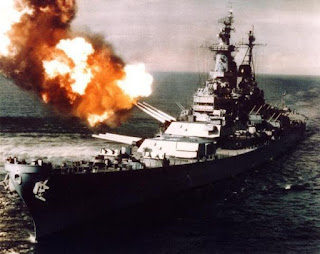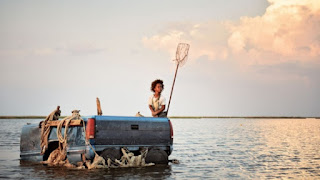John Ford’s Fort Apache is a great movie
about a bad commanding officer.
Henry Fonda is a lieutenant colonel in the cavalry, assigned
to command Fort Apache. It’sa
dusty outpost in Utah’s Monument Valley (which is actually Navajo country, but
that’s not important right now).
He feels he’s been sidelined to a posting beneath his dignity, mentions
his “years serving in Europe,” and refers to Civil War generals as old
friends. This leads us to believe
that he missed the War Between the States, perhaps serving as an attache
somewhere in the Old World while the new one tore itself apart. He’s steeped in military history, has a
powerful sense of decorum and tradition, and must have thrived in the courts of
Europe. The Army dropped the ball
in sending him to the Frontier.
In one of his first official conversations, he learns that
his senior enlisted leader (Ward Bond) has been on-station for some time, had been advanced
to Temporary Major in the war, won the Medal of Honor, and saw his son graduate
from West Point. In other words,
he learns that his senior enlisted leader is a personal and professional
success, as well as an expert on the local conditions. He dismisses the man like a
servant. Naturally, the SEL’s son
is a lieutenant in the command and a fine young officer. Fonda forbids his daughter (Shirley
Temple, growing up nicely), from seeing him because he’s “of a different
class.” How European.
Shortly thereafter, he meets one of his captains, a young
John Wayne. The captain has the
respect of his men, a diplomatic relationship with the local Indians, and an
expert knowledge of the terrain.
When Wayne questions some of his orders, Fonda interprets it as a threat
to his status.
I am here to tell you that when you have a top-performing SEL
and hard-charging junior officers, you are in the catbird seat as a commanding
officer. These people are assets
to cultivate, not burdens to force into line.
Fort Apache isn’t The Caine Mutiny with horses, however. While it uses the same basic premise of
a bad CO to create tension, Fonda’s lieutenant colonel is a bad CO not because
he’s a coward or an incompetent, but because the Army did him a disservice in
plunking him in the middle of the Indian Wars with no training and no time to
get up to speed on life on the frontier.
The men of his command do their best to back him, to advise him, and to
carry out his orders, but what he really needed was a couple of years as
somebody’s second-in-command.
This is great stuff.
I thought Fort Apache was going to be a
seige movie, with Fonda and Wayne fending off hordes of attackers in an
increasingly desperate attempt to hold their fort. Nope. This is a
movie about Fort Apache and its denizens as they adjust to their new CO and the
constant challenges and perils of life in Indian country. When a fight does come, it comes for
reasons we understand, reasons grounded in personalities and conflicts that
flow from character. We care about
Fonda because he isn’t a jerk, he’s just a guy who’s way out of his
element. We care about Wayne
because he’s John Wayne and there’s a reason why he’s one of history’s greatest
movie stars: the guy radiates trustworthiness and competence. In the context of this film, he’s a man
you’d be proud to command and happy to follow. We care about all these people because this is an
observational film, one that puts us at home in Fort Apache’s insular society
and gives us a stake in the well-being of its people.
This is a great movie, one that looks fantastic (John Ford
shooting in Monument Valley: I mean, c’mon), tells a great story, and even
serves as an object lesson for military officers like me. I’m only sorry it took me this long to
see it.


















